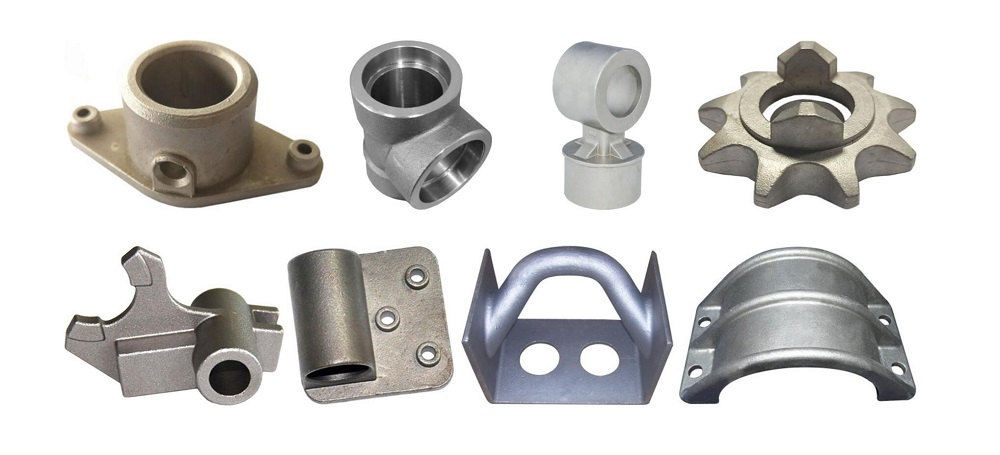Biofuel Development Leads to Food Supply Concerns
Recently, the price of cassava, one of the main raw materials for bioethanol production, has risen. According to the Thai National News report on June 27, the price of cassava in Thailand rose from 1.32 baht (1 US dollar to 30 baht) per kilogram in 2009 to 2.31 baht per kilogram last year, and rose again to 3.4 baht per kilogram this year. .
One of the biggest advantages of investment casting is that most of the metals with good fluidity can be cast, which is less limited by materials. Therefore, in the current manufacturing industry, many accessories are Investment Casting Parts, which are widely used. SCZY has rich experience in all kinds of metal casting. Our internal mold manufacturing workshop, casting workshop and precision CNC machining workshop provide one-stop service to ensure product quality. We do a lot of carbon steel castings, stainless steel castings, alloy castings, copper castings and so on all year round. We have a relatively comprehensive grasp of the characteristics of each material and each casting process, and will take into account the problems that may arise in the future before formal production, and control the risks. 90% of the investment casting parts and precision CNC machining parts produced by SCZY are exported to all over the world, especially Europe. We attach great importance to product quality and service.
Aluminum Casting,Steel Casting,Casting Metal,Sand Cast,Lost Wax Casting,Small Casting,Wax Casting,Casting Machining,Copper Castings,Model Castings Shenzhen SCZY Technology Co.,Ltd , https://www.szsccasting.com
As mankind's demand for biofuels grows, more and more farmers plant biofuel feedstocks. Due to rising prices, the income of Thai cassava farmers has increased threefold in the past 10 years. The energy experts interviewed by the reporter all stated that the increase in the price of cassava and other economic crops is conducive to raising the living standards of farmers. However, in the long run, the dispute between economic crops and food crops will also affect the global food supply.
Farmers replant cassava, reducing rice planting area
According to Yongping Yong, Director of the Energy Department of the Asian Development Bank of Asia Development Bank, cassava is an economic crop, which can be used as a raw material for the production of bioethanol due to its high starch content and low impurities, while cassava, cassava residues, and cassava stalks are also processed. Can be used to generate electricity. In the past 30 years, research on the basic research of cassava as well as breeding, production, processing and utilization of the world has progressed rapidly and has achieved remarkable results. At present, there are cassava cultivation in more than 70 countries and regions in the world, mainly in Africa, Asia and Latin America.
Thailand is the world's largest exporter of cassava products, with an annual output of 25 to 30 million tons. There are more than 3 million people engaged in cassava cultivation throughout the country. In recent years, Cambodia’s neighboring country, Cambodia, has also shown a tendency for farmers to replant cassava. According to Cambodia’s Sin Chew Daily, in Cambodia, cassava produced on the same one hectare of farmland is priced about three times higher than the price of rice. Due to the fact that farmers in most provinces in Cambodia have changed their cassava cultivation, the country’s rice cultivation area has been greatly reduced, and Cambodia’s national cassava cultivation area has increased from 160,000 hectares in the previous two years to 190,000 hectares, and production has increased from 3.5 million tons to 3.9 million. Ton. The director of business information and statistics of Cambodia’s Ministry of Commerce, Guan Bo Ti La, said that this is mainly due to the sharp increase in demand for cassava in the international market.
"Car and people struggle for food" is not sustainable
Thailand and Cambodia are both major rice producers in Southeast Asia. According to Tween, senior advisor to the regional and sustainable development bureau of the Asian Development Bank and executive chairman of the Energy Commission, bioethanol uses cassava, corn and other crops as raw materials, so it will compete with food crops for land use, and biofuel development will take Come to the corresponding food safety issue.
Zhai Yongping also expressed similar concerns. He said that the use of corn to produce bioethanol used to formulate ethanol gasoline will create a situation in which people compete for food with each other. Twee also believes that as oil prices continue to climb, the prices of oil substitutes and raw materials for the production of these alternatives, such as corn and cassava, are likely to continue to rise, and the planted area is likely to continue to expand. With the improvement of living standards and rising population pressure, global food safety will always be a problem. For some Asian countries, ethanol biofuels are not a "sustainable choice."
Yongping Yong told this reporter that the former should always be ranked first between food security and energy security. However, the world’s grain production has not yet formed an effective regional and international coordination mechanism. If the contradiction between the production of biofuels for economic crops and food crops cannot be effectively resolved, it may ultimately cause a crisis in the global food supply. 